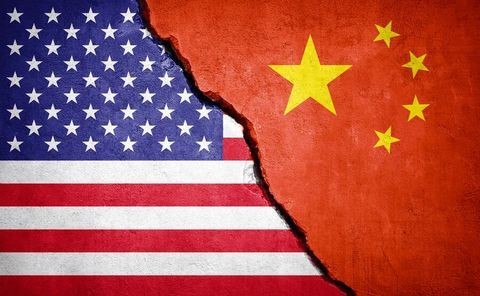Supply Chain Management
Overview
Supply chain disruptions can produce a ripple effect and create severe adverse impacts on an organization’s business. Crowell & Moring collaborates across practices to address how these disruptions can exert an influence on a company’s entire operation, providing guidance in areas including international trade and global mobility, government contracts, criminal and civil regulatory compliance and enforcement, cybersecurity, torts, commercial contracts, and antitrust, as well as in the potential litigation that could arise.
Our lawyers take a risk-based approach to assess, customize, and implement solutions to supply chain issues for global entities that have business activities spanning multiple jurisdictions with varied administrative, regulatory, legislative and judicial environments. We work with clients—including Fortune 100 companies—and their regional and local affiliates across the world to address concerns regarding global security, shortages, compliance violations, product quality, factory shutdowns, inspection delays, employee and third-party management, and a host of other problems.
These supply chain management concerns have further proliferated and intensified following the COVID-19 pandemic. Crowell & Moring is well-positioned to assist clients in overcoming these obstacles to get their businesses running smoothly and efficiently again.
Our firm assists on a wide variety of cross-border issues affecting companies’ supply chains. We counsel clients on—and conduct investigations involving—supply chain risks, ethics, quality systems, and compliance, and we frequently counsel clients on compliance with U.S. and UK modern slavery, forced labor, and anti-trafficking requirements. Our team also helps clients formulate resolutions to global workforce shortages and global mobility issues, working with clients to restructure their supply chains as needed to keep their business on track. In addition, we have handled many matters involving the effects of COVID-19 restrictions such as vaccine mandates, quarantines, travel exemptions, and remote work on the supply chain, and we devise solutions for clients when products have been held up by customs or concerns have emerged over counterfeit goods. Our recent work includes:
- Advising a pharmaceutical company regarding supply chain disruption issues related to its inability to receive active pharmaceutical ingredients (API) from its suppliers and the resultant inability to perform for its customers.
- Counseling a Fortune 50 company on international issues related to managing international workforce in order to comply with the ever-changing landscape of new rules and regulations implemented in connection with the global coronavirus pandemic, including review and guidance on global and in country company policies for health checks and remote working, use of annual and sick leaves, delays in hiring and cross-border secondments, and government reporting.
- Advising client in relation to supply chain due diligence issues relating to goods imported from Malawi in response to U.S. Customs and Border Protection (CBP) ban of imports absent a showing that the goods were not produced with forced labor.
- Counseling a major consumer products manufacturer and a big box retailer on supply chain disruption issues, including devising a workaround for inspection and random sampling testing ordinarily conducted on-site, and with contract dispute resolution on execution of a recall where the supply was delayed pending factory shutdowns.
As supply chain disruptions have left organizations struggling to fill operational gaps created by lockdowns, shortages, trade barriers, logistical constraints, and other interruptions, companies simultaneously face heightened bribery and corruption risks presented by new markets, alternative supply chains and sources, and changes to import and export routines. Crowell & Moring’s White Collar and Regulatory Enforcement attorneys, which include former prosecutors from the U.S. Department of Justice (DOJ), U.S. Attorney’s Offices, and enforcement attorneys from the U.S. Securities and Exchange Commission (SEC), frequently help clients navigate the legal and regulatory challenges presented by this evolving landscape, and increased scrutiny from regulators tasked with enforcing the Foreign Corrupt Practices Act (FCPA), the U.K. Bribery Act, and other anti-corruption statutes.
Crowell attorneys partner with our clients to create a nuanced and efficient approach to all anti-corruption matters. This includes helping organizations develop and implement compliance programs sufficiently tailored to prevent, identify, and address corruption and enforcement risks, and where necessary, leveraging our experience to efficiently investigate, remediate, and resolve internal investigations, government-facing investigations, and other anti-corruption related matters. Representative experience includes:
- Defended client in a FCPA investigation of supply chain and international trade activity in Latin America in DOJ and SEC inquiries, and performed related anti-corruption risk assessments.
- Led self-reporting to the SEC and DOJ and orchestrated all remediation efforts on behalf of Ralph Lauren Corporation for FCPA allegations related to supply chain import-export activities in Argentina, including world-wide risk assessments, compliance and training reviews, and implementation of remediation recommendations. Negotiated precedent-setting dual NPAs with the SEC and DOJ.
- Represented an international freight forwarding company and its CEO in connection with FCPA allegations in West Africa and negotiated private non-prosecution agreements from DOJ for both clients.
- Conducted an internal investigation into allegations of FCPA violations for a foreign logistics company in Central America.
- Represented a logistics company’s executive in charge of supply chain management in connection with FCPA allegations concerning expansion/growth activities in Brazil.
Increasingly, our clients are subject to often complex and evolving cybersecurity and privacy global and U.S. regulatory programs and contractual requirements that flow down to their supply chain. In addition, these clients are dealing with a massive spike in ransomware attacks on the global supply chain and new complications created by the expanding software supply chain. Our team assists clients with vetting and auditing vendors to whom sensitive personal data and/or business proprietary information may be disclosed. We also help our clients in a wide variety of sectors assess potential supply chain risks when considering vendors for a variety of cybersecurity- and privacy-related activities, including for IT services, data mapping, privileged forensic investigations in connection with cyber and privacy incidents, and cybersecurity and privacy risk assessments. As part of these engagements, we assist our clients in the development of risk-mitigation processes including Master Service Agreements, Rules of Engagement, and, as appropriate, guidelines for protecting attorney-client privilege and confidentiality and help clients develop their own protocols and questionnaires to facilitate this process moving forward. In recent years, we have handled the following:
- Advising a health care nonprofit on its collaboration with manufacturers, suppliers, wholesalers, distributors, group purchasing organizations, and trade associations to create a data exchange platform for sharing information, best practices, and strategies among key parties in the health care supply chain in order to promote efficient management of supply and distribution across U.S. health care providers during the COVID-19 crisis.
- Working with a publicly traded Fortune 500 government contractor to develop and implement an enterprise-wide supply chain policy, including developing surveys and establishing protocols to analyze risks and implement processes to remediate and mitigate cybersecurity and privacy risk.
- Developing a supply chain management system focusing on both U.S. and global regulatory and security regimes.
- Preparing cybersecurity risk management frameworks for a client’s supply chain, which includes reviewing and assessing cybersecurity preparedness, analyzing potential risks, and acting in coordination with the suppliers to mitigate them.
As a more whole-of-government approach to supply chain security emerges, our team of government contracts lawyers routinely advises clients in flowing contract requirements to and managing compliance by their suppliers, including requirements set forth in U.S. export controls, the Buy American Act, Trade Agreements Act, and other domestic preference programs, as well as restrictions on foreign investment and ownership in the United States such as reviews conducted by the Committee on Foreign Investment in the United States (CFIUS) and measures to mitigate Foreign Ownership, Control, or Influence (FOCI). We also possesses extensive experience conducting investigations into threats to security arising within the supply chain and are especially adept at managing the amplification of exposure to liability driven by intersections with a myriad of existing regimes, including the False Claims Act, the Mandatory Disclosure Rule under FAR 52.203-13, and Suspension and Debarment threats. Additionally, we counsel contractors on risk-based, practical approaches to complying with DFARS 252.204-7012, FAR 52.204-21, FAR 52.224-3, the National Industrial Security Program Operating Manual (NISPOM), Privacy Act, and Federal Information Security Management Act (FISMA), and how contractors can practically manage the risks presented by those provisions throughout the supply chain. Our experience covers not only formal subcontracting arrangements, but also less visible yet equally important vendor management programs. Successes include:
- Providing advice to a technology manufacturer regarding management of government-purchase priorities and supply-chain impacts as a result of COVID-19.
- Advising a major government contractor on customer engagement and notification strategy to address delivery delays due to supply chain disruptions.
- Preparing comments on proposed FAR and DFARS provisions and providing additional advice regarding supply chain issues.
- Counseling an industrial manufacturer with respect to compliance with Defense Production Act-rated orders in face of supply chain shortages.
Crowell & Moring assists clients in identifying the regulatory and business risks as their products navigate their way through the supply chain. Our lawyers regularly guide clients through all of the necessary steps for the tracing, seizing, storing, transport, and destruction of counterfeit goods. We also help clients address product safety regulatory compliance risk in their supply chains, assessing the adequacy of their compliance management systems and where difficulties could arise with a number of authorities. In addition, we guide organizations in creating recovery programs that set expectations with suppliers regarding defects and warranty-claim problems that can later enable them to pursue downstream recovery against suppliers when issues arise. Our recent experience includes:
- Advising a major consumer products manufacturer and a big box retailer on supply chain disruption issues including with contract dispute resolution on execution of a recall where the supply was delayed pending factory shutdowns.
- Representing a manufacturer and distributor of personalized consumer products in connection with the distribution of personal protective equipment (PPE) in response to the COVID-19 pandemic.
Crowell & Moring teams with clients to evaluate their contractual relationships with key suppliers, including protections and strategies for when products are delayed along the supply chain and the effect of exclusivity provisions and supplier certification. We gauge whether companies are ensuring appropriate protections, and we assist with issues involving the inability to perform/breach of contract (including force majeure, frustration of purpose, material adverse event, and impossibility/impracticality), related termination rights and insurance issues, and contract due diligence review. Our team also looks for opportunities to update contracts with suppliers and customers in light of post-COVID-19 supply chain issues—whether new contracts or renewal of existing contracts—as measures for protecting a company’s future. Our work has included:
- Counseling an automotive industry manufacturer with respect to contract and supply chain issues in dealing with performance disruptions, including on whether to continue accepting orders in a force majeure situation.
- Advising a U.S. biotechnology company on an agreement to become the exclusive U.S. distributor of COVID-19 rapid antibody serology tests from China, including negotiating the distribution agreement, advising on risk mitigation and FDA issues, preparing sales agreements and website terms and conditions, and helping liberate the test kits from an FDA hold at the port of entry.
- Advising a public company headquartered in a Level 3 country on utilizing an SEC coronavirus order to delay the filing of its Form 10-K, in light of difficulty completing its audit and preparation of its Form 10-K as a result of government lockdown restrictions.
In the aftermath of COVID-19, companies’ liability for supply chain disruptions has come under increased scrutiny, and organizations must be prepared to address the potential litigation that will follow. Our litigators assist clients with the range of litigation issues that can result from supply chain-related disputes, including breaches of contract and liability for such breaches. We represent clients when disputes arise with clients’ supply chain vendors, from product liability to IP theft. Over the last several years, our representative experience has included:
- Litigating a supply chain dispute in Detroit, Michigan federal and state courts involving drivetrain equipment.
- Advising and providing potential litigation support to a manufacturer on supply agreement COVID-19-related dispute.
Our Antitrust and Competition team has provided antitrust counseling to clients facing issues with respect to supply chains, distribution, and pricing, as well as response to government emergency regulations and supply chain programs and lawful collaborations with competitors. We help companies assess the risks of raising prices on goods and services during times when supply chain issues may be resulting in increased costs to the company, and help navigate the complexities of joint competitor supply chain management, including the sharing of sensitive supplier qualification and credit information. Our lawyers have also represented companies throughout the supply chain to help them traverse emerging antitrust issues involving digital agricultural technologies in a rapidly changing marketplace. Recent matters include:
Price Increases and Announcements
- Advising a large industrial client on antitrust risk management issues associated with supply chain, production, and sales collaborations with competitors during the COVID-19 pandemic.
- Representing a major pharmaceutical association on antitrust aspects of collaboration between pharmaceutical companies in Europe to ensure appropriate supply of essential drugs.
- Advising providers and suppliers entering into collaborative care arrangements with competitors to isolate COVID-19 patients in order to ensure antitrust and fraud and abuse compliance and to address operational questions related to billing and reimbursement for such services.
Contacts
Insights
Press Coverage | 03.22.23
Choose Words Carefully In Forced Labor Communications With Chinese Suppliers, Lawyer Says
Blog Post | 12.29.22
Insights
- |
06.15.23
Government Contracting Law Report
“Addressing Forced Labor Risks in the Supply Chain,” KPMG
|11.09.23
"ESG Program Development: Anti-Forced Labor and Supply Chain Due Diligence,” KPMG
|01.24.23
Professionals
Insights
Press Coverage | 03.22.23
Choose Words Carefully In Forced Labor Communications With Chinese Suppliers, Lawyer Says
Blog Post | 12.29.22
















